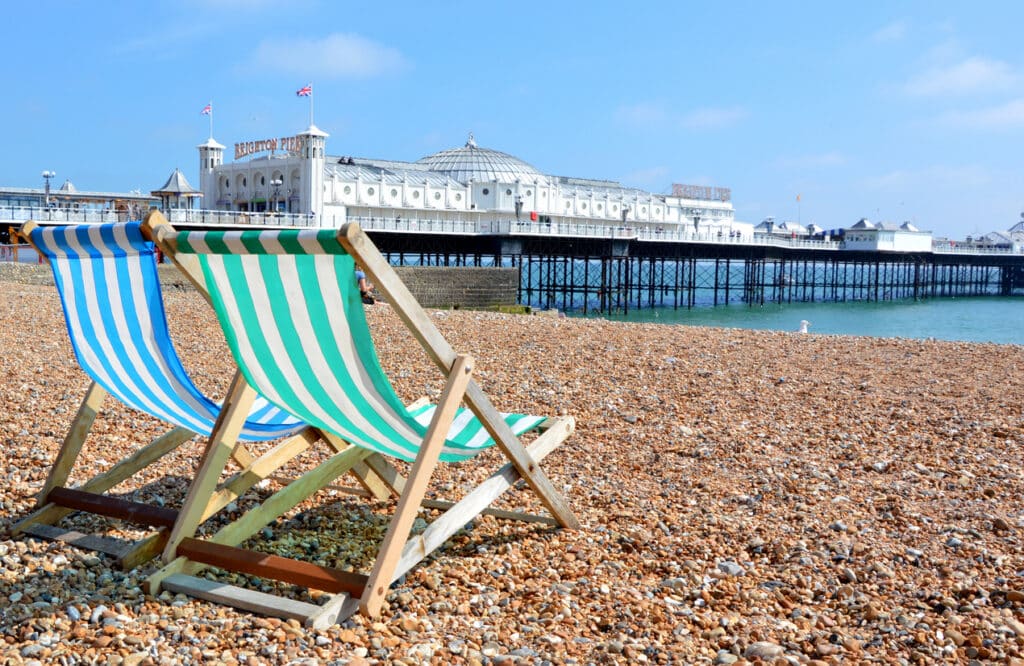If you’re a U.S. expat dreaming of owning property in the UK, you’re not alone. The idea of securing a home or investment property abroad is exciting—but it can also feel daunting, especially when it comes to navigating expat mortgages in the UK. The good news? While the process is more complex than for UK residents, expats can and do get mortgages in the UK every year. In this guide, we’ll break down the realities, requirements, and practical steps to help you approach the UK mortgage market with confidence.
Can expats actually get UK mortgages?
Let’s start with the big question: Is it really possible for expats to get a mortgage in the UK? The answer is yes—but with important caveats. UK lenders do offer mortgages to expats and non-residents, but the process is more involved than for local buyers. Lenders see overseas applicants as higher risk, so they apply stricter criteria and require more documentation.
For U.S. expats, the process can feel especially complex due to additional regulatory checks (like anti-money laundering rules) and the need to verify foreign income. However, with the right preparation and guidance, many expats successfully secure UK mortgages each year. Whether you’re looking to buy a home for your family, invest in a rental property, or keep a foothold in the UK market, understanding the landscape is your first step.
Eligibility requirements and residency status for expat mortgages
Eligibility for expat mortgages UK depends on several factors, with residency status being a key consideration. Here’s what lenders typically look for:
- Nationality and residency: Most UK lenders will consider applications from British citizens living abroad, but some also accept foreign nationals, including U.S. citizens living in the UK. Your current country of residence can impact your options—some lenders restrict mortgages for residents of certain countries due to regulatory or risk concerns.
- Visa status: If you’re not a UK citizen, your visa type and length of stay can affect your eligibility. Lenders may require proof of indefinite leave to remain, a work visa, or other documentation showing your right to reside in the UK.
- Purpose of property: Are you buying to live in the property, as a second home, or as a buy-to-let investment? Lenders may have different criteria and products for each scenario.
- Age and employment: Most lenders have minimum and maximum age limits, and they’ll want to see stable employment or self-employment income, even if it’s earned abroad.
Higher deposit requirements and stricter lending criteria
One of the biggest differences expats face is the size of the deposit required. While UK residents might secure a mortgage with as little as 5-10% down, expat mortgages in the UK typically require a much higher deposit—often 25% or more of the property’s value. This is because lenders view overseas applicants as higher risk and want to mitigate potential losses.
Other stricter lending criteria include:
- Lower Loan-to-Value (LTV) ratios: Lenders may cap the amount you can borrow relative to the property’s value.
- Interest rates: Expat mortgage rates are often higher than standard UK rates, reflecting the added risk and administrative complexity.
- Proof of funds: You’ll need to show not only your deposit but also evidence of how you accumulated those funds, to comply with anti-money laundering regulations.
💡Pro Tip:
Start saving early and be prepared to document the source of your deposit. If you’re selling a property abroad or transferring funds from the U.S., keep clear records to satisfy lender requirements.
Which UK lenders offer mortgages to expats and non-residents
Not all UK banks and building societies offer expat mortgages, but there are several reputable lenders and specialist brokers who cater to overseas buyers. Some of the main options include:
- High street banks: A few major UK banks (like HSBC, Barclays, and NatWest) have expat mortgage divisions, but their criteria can be strict and their product range limited.
- Specialist lenders: Specialist lenders such as Skipton International, Kensington Mortgages, Investec, and HSBC Private Banking often offer more flexible expat mortgage options than high street banks. Halifax no longer provides expat mortgages, so focus on these established specialists or private banks.
- Mortgage brokers: Working with a broker who specializes in expat mortgages can be invaluable. They understand the market, know which lenders are open to U.S. expats, and can help you navigate the paperwork and negotiations.
Practical advice:
- Research lenders’ expat offerings online, but also reach out directly or via a broker to discuss your specific situation.
- Be upfront about your nationality, residency, and income sources—this helps avoid wasted time with lenders who can’t accommodate your needs.
Income verification and credit history challenges for overseas applicants
Perhaps the most challenging part of securing an expat mortgage in the UK is proving your income and creditworthiness from abroad. Here’s what to expect:
- Foreign income: Lenders will require proof that your income is steady and reliable—like contracts, payslips, tax returns, or bank statements. If you earn in U.S. dollars or another foreign currency, expect lenders to reduce the amount they count (a “currency haircut”) to cover the risk of exchange rate changes.
- Credit history: UK lenders prefer a UK credit history, but as an expat, you may not have one. Some lenders will accept international credit reports or look at your U.S. credit score, but this varies widely.
- Self-employment: If you’re self-employed, expect to provide at least two years of audited accounts or tax returns, along with evidence of ongoing contracts or business activity.
- Additional documentation: Be prepared for extra paperwork, such as proof of address abroad, copies of your passport and visa, and detailed explanations of any large transactions.
💡Pro Tip:
Gather your financial documents early and consider requesting a copy of your U.S. credit report. If possible, maintain a UK bank account or credit card to help build a UK credit footprint, even while living abroad.
Bought Your UK Home? Don’t Forget About U.S. Taxes
Securing an expat mortgage in the UK is a major milestone—but U.S. tax rules don’t stop at the front door. Bright!Tax helps American homeowners abroad stay compliant and stress-free, so you can enjoy your new home without tax worries. Get in touch for expert, friendly expat tax support.
Frequently Asked Questions
-
Can U.S. expats get a mortgage in the UK?
Yes, U.S. expats can get a mortgage in the UK, but the process involves stricter criteria, higher deposits, and more documentation than for UK residents.
-
What are the main requirements for expat mortgages in the UK?
Lenders typically require proof of income, a larger deposit (often 25%+), valid residency or visa status, and thorough documentation of your finances.
-
Which UK banks offer expat mortgages?
Some high street banks (like HSBC and Barclays) and specialist lenders (such as Skipton International) offer expat mortgages UK, but criteria vary widely.
-
How does my U.S. credit history affect my UK mortgage application?
Some UK lenders will consider your U.S. credit report, but many prefer a UK credit history. Lack of UK credit may mean higher deposits or stricter terms.
-
Will UK lenders count all of my foreign income for a mortgage?
Not always—UK lenders typically only count 75–90% of your foreign income when deciding how much you can borrow. This “discount” helps them manage the risk of currency fluctuations and makes sure you can still afford payments if exchange rates change.

 Connect on LinkedIn
Connect on LinkedIn

